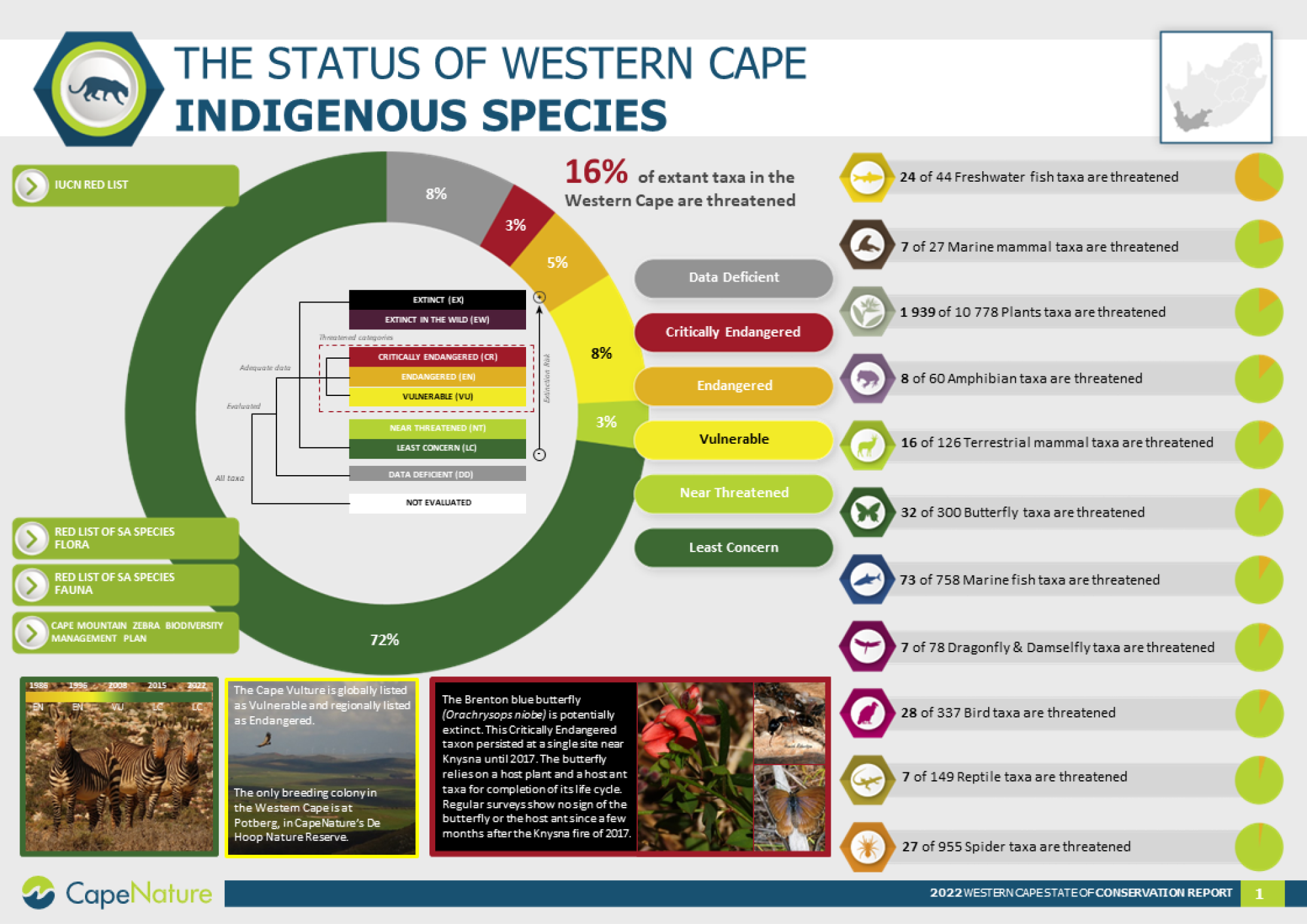
The Biodiversity of the Western Cape
The annual CapeNature Conservation Review provides an opportunity to highlight some of the achievements over the last year related to our work in Biodiversity Conservation, Tourism, and Community Engagement. The theme for this year's review is 'Connect with Nature’, and we invite you to join us virtually and enjoy a selection of presentations prepared for the Conservation Review. Hear about how CapeNature and partners are working with NASA via the BioSCape project; learn more about CapeNature’s innovative tourism and community outreach work; get an insight into the value of working dogs in biodiversity monitoring; learn more about our protected area expansion and get an insight into adventurous alien clearing via helicopter. Our five new Groen Sebenza interns have also join in and prepared short presentations about youth in conservation.
The biodiversity of the Western Cape
The Western Cape has an astounding wealth of biodiversity across all taxonomic groups and ecosystems and many species are endemic to our province. The term biodiversity refers to the variety of species (plants, animals, and micro-organisms) and ecosystems as well as the ecological process that allow biodiversity to persist over time. Biodiversity also includes genetic diversity. At an ecosystem level, there are 171 terrestrial ecosystems in our province. Sadly 64 of these are listed as Threatened in terms of the National Environmental Management: Biodiversity Act (NEMBA 2004). Of the threatened ecosystems, 35 are listed as Critically Endangered and 27 as Endangered. In terms of plant diversity, the Western Cape has by far the richest plant diversity of the nine provinces, including 10 778 plant taxa, of which approximately 61% are considered endemic. The Western Cape comprises 52.3% of the flora of South Africa (SANBI 2020).
Annually CapeNature produces a Western Cape State of Conservation Report which provides updates on the conservation status of indigenous biodiversity species and ecosystems. An overview of environmental threats is also provided, noting that the main threats include habitat loss, alien invasive vegetation, inappropriate fire regimes, biodiversity crime and climate change. The status of indigenous species indicates that 16% of extant taxa in the Western Cape are threatened. As depicted in the graphic below, the status of freshwater fish is of concern as 24 of the 44 Freshwater fish taxa in the province are threatened. Many species of conservation concern are protected in CapeNature Nature Reserves across the province. For more detailed information access the latest Western Cape State of Conservation Report on our website: SOCR 2022

Status of Western Cape Indigenous Species, from the State of Conservation Report 2022.
Related News
How can I assist you today?
How can I assist you today?



